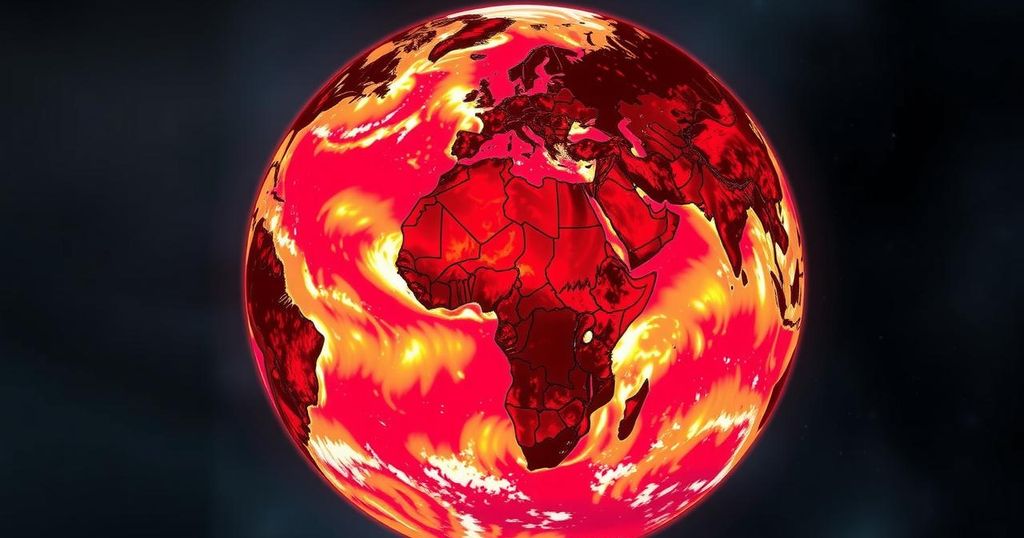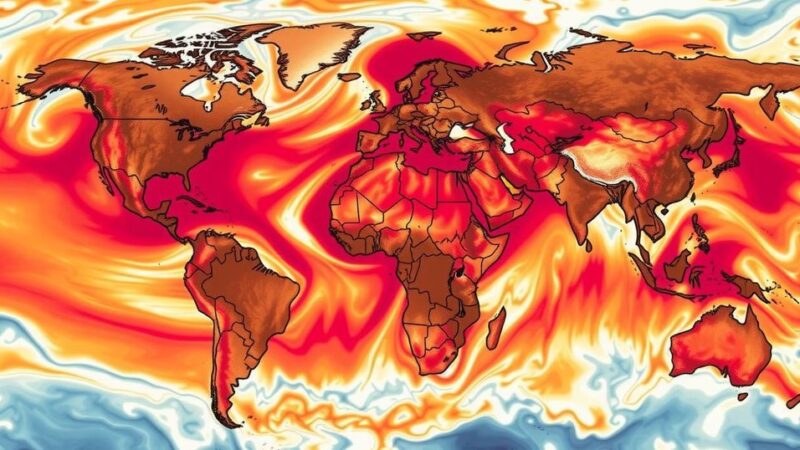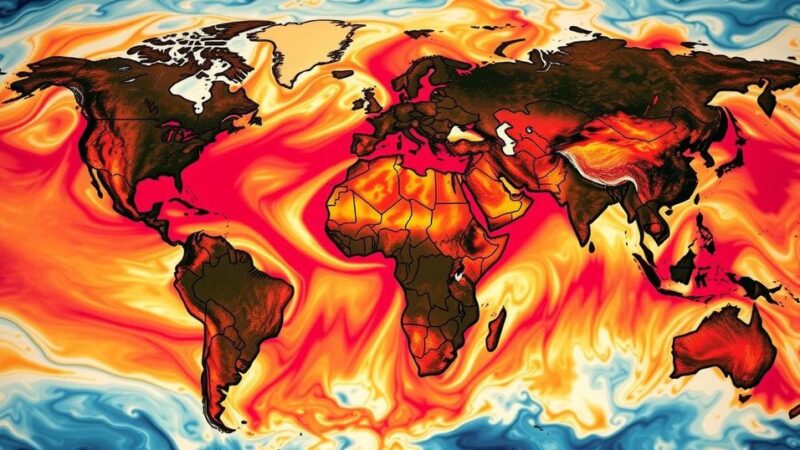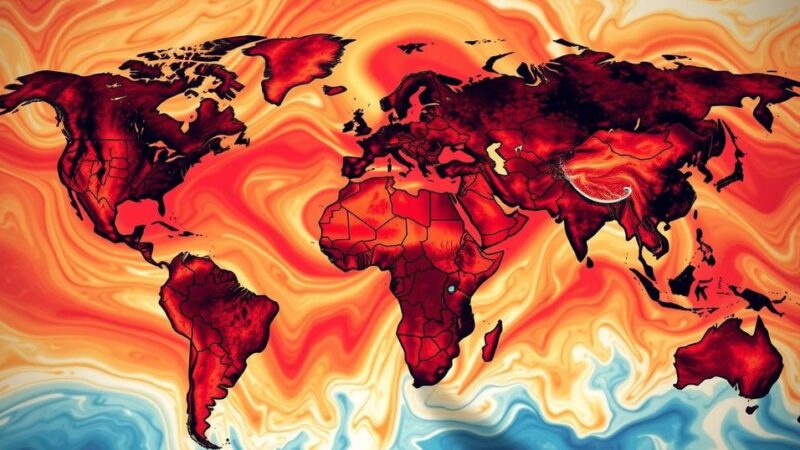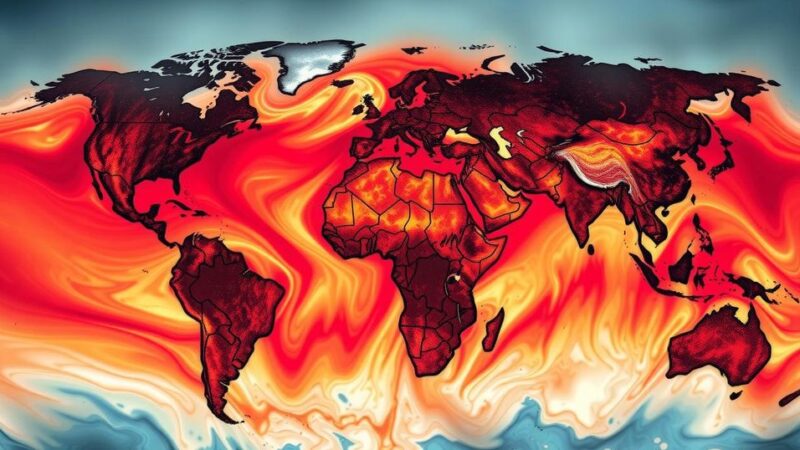Climate science agencies confirm that 2024 has recorded the hottest temperatures globally, surpassing 2023’s record. The year has seen unprecedented levels of heat, sea surface temperatures, and atmospheric water vapor, leading to extreme weather events. Notable occurrences include Hurricane Helene and severe flooding in various regions. Experts emphasize the role of human-induced greenhouse gas emissions as the primary cause of these climatic changes, calling for urgent actions to limit future warming.
Climate science agencies from the U.S., U.K., Europe, and Japan have confirmed that the year 2024 has marked the hottest year ever recorded, surpassing last year‘s record as greenhouse gas emissions continue to rise. This record heat has been accompanied by unprecedented levels of sea surface temperatures and atmospheric water vapor, leading to more extreme weather events such as intense storms and substantial flooding in many regions.
Samantha Burgess, Deputy Director of the Copernicus Climate Change Service, stated, “These high global temperatures, coupled with record global atmospheric water vapor levels in 2024, meant unprecedented heat waves and heavy rainfall events, causing misery for millions of people.” The connection between anthropogenic climate change and extreme weather is increasingly evident, according to NASA Goddard Institute for Space Studies Director Gavin Schmidt, who remarked, “It is very clear that the heat waves we are seeing would not be happening, intense rainfalls we are seeing almost everywhere would not be happening without anthropogenic warming.”
Among the severe extreme events of 2024 were Hurricane Helene, which resulted in over 230 fatalities across the U.S., as well as catastrophic flooding in Spain and a significant drought in the Amazon region. Russell Vose, NOAA’s Product Development Branch Chief, emphasized the prediction of further extremes in a warming climate while acknowledging the influence of other factors such as natural weather variability.
Scientists have identified several contributing factors to the warming trend observed in 2024, including the El Niño effect and reduced cloud cover. Schmidt noted that greenhouse gas emissions from fossil fuel combustion remain the primary driver of rising temperatures, asserting, “The global mean temperature will continue to rise as long as we continue to emit greenhouse gases.”
The most recent data indicates that the average temperature has approached the critical threshold of 1.5 degrees Celsius above preindustrial levels, a threshold that was momentarily surpassed last year. Michael E. Mann, a climate expert, cautioned, “The 1.5 C target is really a stand-in for all of the climate impacts associated with that level of warming,” emphasizing the urgency of limiting future temperature rises by reducing emissions.
Amidst these alarming trends, cases of extreme weather continue to emerge, with Mann highlighting the devastation of wildfires in Southern California as an immediate consequence of climate change.
As the global community grapples with the reality of climate change, the urgency for substantial action to mitigate its impacts has never been greater. The intertwined nature of human activities and climate extremes necessitates a collective effort towards sustainability and the stabilization of greenhouse gas concentrations in the atmosphere.
Climate agencies have issued a stark reminder of the severe consequences linked to global warming, marking 2024 as a pivotal year in the ongoing battle against climate change.
The article discusses the alarming trend of rising global temperatures and the confirmation by various climate science agencies that 2024 has become the hottest year on record. The continuous rise in greenhouse gas emissions, primarily from human activities such as fossil fuel burning, is underscored as the main driving force behind this warming. The article also explores the links between climate change and the increasing incidence of extreme weather events, as well as the implications for global climate targets established under the Paris Agreement.
In conclusion, the data from 2024 paints a worrying picture of the current state of climate change, with the Earth experiencing its hottest year on record. The role of greenhouse gas emissions in exacerbating extreme weather events cannot be overstated, and urgent action is necessary to mitigate further impacts. Scientists emphasize the importance of limiting temperature increases to avoid catastrophic consequences and urge for immediate reductions in emissions to safeguard the planet’s future.
Original Source: www.newsweek.com

